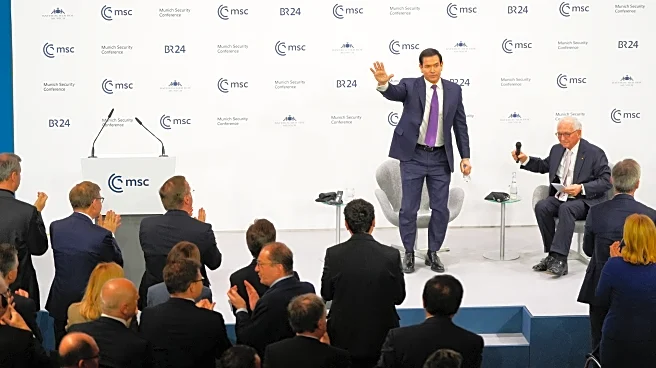Rapid Read • 7 min read
Harjinder Singh, a truck driver accused of making an illegal U-turn that resulted in the deaths of three people in Florida, has been denied bond. The incident has led to a dispute between the U.S. Department of Homeland Security and California Governor Gavin Newsom regarding Singh's immigration status. Singh, originally from India, is alleged by the Trump administration to be in the U.S. illegally. He faces charges of vehicular homicide and immigration violations and is currently held in St. Lucie County Jail. U.S. Immigration and Customs Enforcement has placed a hold on him. The controversy centers around Singh's acquisition of a work permit and driver's license in California, a state that issues licenses regardless of immigration status. Governor Newsom's office claims Singh obtained his work permit during President Trump's tenure, a point contested by Homeland Security.
AD
This case highlights ongoing tensions between federal immigration policies and state-level regulations. California's policy of issuing driver's licenses irrespective of immigration status is designed to enable undocumented individuals to work and access essential services. However, the Trump administration's stance underscores a stricter approach to immigration enforcement. The denial of bond for Singh reflects the serious nature of the charges and the federal government's commitment to addressing illegal immigration. This situation could influence future policy discussions on immigration and state autonomy in issuing licenses, impacting both undocumented workers and state-federal relations.
The legal proceedings against Singh will continue, with potential implications for immigration policy debates. The case may prompt further scrutiny of state policies that conflict with federal immigration enforcement. Political leaders and advocacy groups are likely to weigh in, potentially influencing legislative actions or executive orders. The outcome could affect how states navigate the balance between public safety and immigrant rights.
AD
More Stories You Might Enjoy











